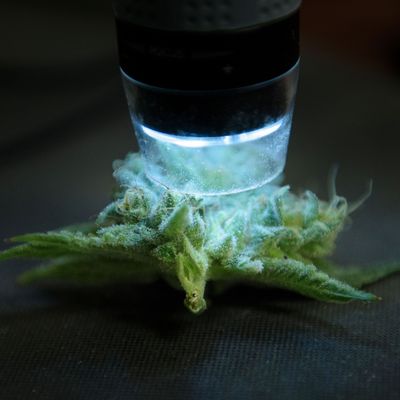
According to lots of reports, the Drug Enforcement Administration has decided that it’s going to keep marijuana, that magnifier of orgasms, as a Schedule 1 drug — meaning that it has, according to the DEA, “no currently accepted medical use,” and is in the same class as heroin, LSD, MDMA, and peyote. (Cocaine, methamphetamine, and opioids like fentanyl are Schedule 2.) “This decision isn’t based on danger,” DEA head Chuck Rosenberg told NPR. “This decision is based on whether marijuana, as determined by the FDA, is a safe and effective medicine … and it’s not.”
But within that decision, a possibly crucial bit of marijuana reform is happening. As the New York Times reports, the University of Mississippi has long been the only organization approved to grow marijuana for medical-study research — creating such a bottleneck that, according to the scientists who spoke with the Times, it could take years for researchers to get their hands on the plant to do their work. But under the new policy, any university with “an approved research protocol and the security measures needed to store dangerous drugs” will be able to apply to grow pot for research purposes, with no limit to the number of schools doing so.
This will open up the market for research marijuana. It’s simple capitalism: With more suppliers, you can expect greater diversity in plants, more competition among growers, and a greater urgency about meeting the demands of researchers, according to Brookings Institution senior fellow John Hudak. “If you were a researcher who thought a product with high THC would help someone with a painful cancer, you were out of luck,” Hudak told the Times. “You couldn’t access high THC marijuana in the same way you could buy it in a market in Colorado” — where adult recreational use is legal.
You can take this as a small victory for the slow march of empiricism. If, as Rosenberg says, the DEA and FDA are making these decisions on how to classify marijuana based on scientific research, then having that work continually hamstrung by a limited supply of research material slows the whole process down. Pacific Standard’s Jared Keller calls these things “epistemic roadblocks to legalization”: Without complete data, you can’t expect lawmakers to create sound policy, whether you’re talking about gun violence or psychoactive substances. But in legislation, as in life, better information should lead to better decisions.

